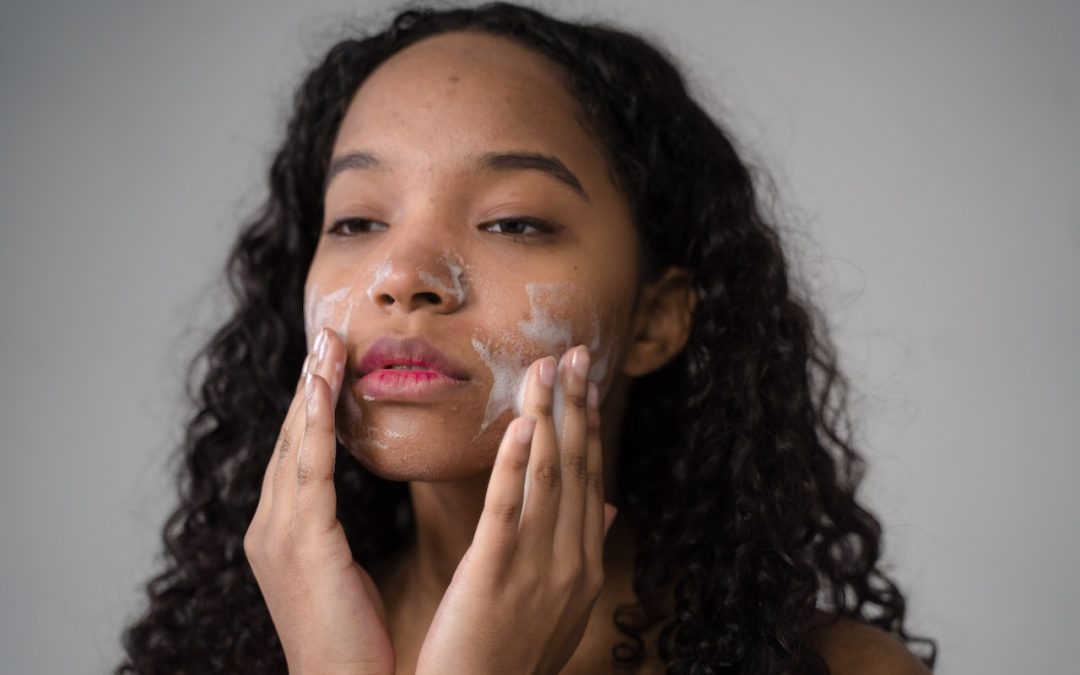Do you know the real difference between dehydrated and dry skin? Understanding the distinction is crucial for effective skincare. Dehydrated skin lacks water, while dry skin lacks oil. Knowing which condition your skin faces can help tailor your skincare routine for optimal results. Keep reading as we unravel the mysteries of dehydrated versus dry skin, empowering you to make informed choices about your skincare regimen. Enhance your skin health by learning how to identify and address these common skin concerns today.
Understanding Dehydrated Skin
Definition
Dehydrated skin is a temporary condition that occurs when the skin lacks sufficient water content. Unlike dry skin, which is a skin type, dehydrated skin is a condition that can affect anyone.
Dehydrated skin is characterized by epidermal water loss, causing the skin to appear dull, feel tight, and sometimes even flaky. This condition can lead to an increase in sensitivity and fine lines.
Importance of Hydration
Hydrating the skin is crucial for maintaining its elasticity and overall health. Proper hydration helps to plump up the skin cells, making the skin look more radiant and youthful.
When the skin lacks water, it can become more prone to irritation and inflammation. By ensuring adequate hydration, you can help prevent issues such as redness, itching, and discomfort.
Impact on All Skin Types
It’s essential to note that dehydrated skin can affect individuals with any skin type. Whether you have oily, dry, combination, or sensitive skin, inadequate hydration can still lead to dehydrated skin.
Even those with oily skin can experience dehydration if they strip their skin of moisture through harsh products or environmental factors. Therefore, it’s crucial to focus on replenishing the skin’s water content regardless of your skin type.
Understanding Dry Skin
Chronic Condition
Dry skin is a chronic condition that results from a lack of natural oils, leading to a compromised skin barrier. This can cause tightness, flakiness, and itching.
Dry skin often requires ongoing management to maintain moisture levels. Regular moisturization is essential to prevent further moisture loss and alleviate discomfort.
Influencing Factors
Several factors can influence the development of dry skin. Genetics play a significant role, as some individuals are predisposed to having naturally drier skin. Environmental factors such as low humidity levels and harsh weather conditions can exacerbate dryness. lifestyle choices like excessive bathing or using harsh soaps can strip the skin of its natural oils.
- Genetic predisposition
- Low humidity levels
- Harsh weather conditions
- Excessive bathing
- Use of harsh soaps
Management Strategies
To manage dry skin effectively, it is crucial to adopt a consistent skincare routine. This includes using gentle cleansers, moisturizers, and protective creams to nourish and protect the skin barrier.
- Consistent skincare routine
- Gentle cleansers
- Moisturizers
- Protective creams
Lifestyle Adjustments
Making certain lifestyle adjustments can also help alleviate dry skin symptoms. Staying hydrated by drinking an adequate amount of water is essential for overall skin health. Avoiding long hot showers and using them in dry indoor environments can help maintain skin moisture.
- Staying hydrated
- Avoiding long hot showers
- Using humidifiers
Causes of Dehydrated and Dry Skin
External Factors
External factors like weather and humidity play a significant role in causing dehydrated skin. Harsh weather conditions, especially cold and windy environments, can strip the skin of its natural moisture, leading to dehydration. Similarly, low humidity levels can also contribute to skin dehydration by accelerating water loss from the skin’s surface.
Compromised Skin Barrier
A compromised skin barrier is a common factor that can result in both dehydrated and dry skin. When the skin barrier is weakened or damaged, it loses its ability to retain moisture effectively. This can lead to increased water loss, making the skin prone to dehydration. A compromised skin barrier can also allow irritants to penetrate the skin more easily, further exacerbating dryness and sensitivity.
Lifestyle Choices
Diet and hydration habits are crucial lifestyle factors that can impact the condition of the skin. A diet lacking in essential nutrients, particularly those that support skin health like vitamins A, C, and E, can contribute to skin dryness and dehydration. Moreover, inadequate hydration can impair the skin’s ability to maintain proper moisture levels, leading to dehydration and dryness.
Signs of Dehydrated Skin
Dullness
Dehydration in the skin often manifests as dullness, making the complexion appear lackluster and tired. This symptom is a clear indicator of inadequate skin hydration levels.
Tightness and Flakiness
Dehydrated skin tends to feel tight and may exhibit flakiness, especially after cleansing or exposure to harsh weather conditions. These sensations signal a lack of moisture in the skin.
Combination of Dryness and Oiliness
A key characteristic of dehydrated skin is its tendency to show a combination of dryness and oiliness. This can be confusing for individuals who experience both flaky patches and excess oil production simultaneously.
Increased Visibility of Fine Lines
One of the telltale signs of dehydration is the increased visibility of fine lines on the skin. When the skin lacks proper hydration, wrinkles and fine lines become more pronounced, emphasizing the need for improved moisture levels.
Tired Appearance
Individuals with dehydrated skin often notice a tired appearance, regardless of how much rest they get. This fatigue can be attributed to the skin’s inability to retain moisture effectively, leading to a lackluster and worn-out look.
Signs of Dry Skin
Rough Texture
Rough texture is a key indicator of dry skin, often feeling uneven and bumpy to the touch. The lack of moisture causes the skin to lose its smoothness and softness.
Itchiness
Itchiness is a common symptom associated with dry skin, leading to the constant urge to scratch. This discomfort can be persistent, affecting daily activities and sleep quality.
Scaling and Flaking
Scaling, peeling, or flaking are visible signs that the skin lacks moisture, resulting in the shedding of dead skin cells. These flakes can be noticeable on clothes or bedding.
Discomfort and Tightness
Discomfort and tightness are sensations frequently experienced with dry skin, making movements uncomfortable. The skin may feel stretched and restricted due to the lack of hydration.
Impact on Appearance
- Dry patches and flaky skin are common occurrences with dry skin, affecting the overall appearance.
- Dry weather conditions can exacerbate the issue, leading to increased dryness and irritation.
- The skin may exhibit a dry appearance, appearing dull and lacking vitality.
Skin Conditions
- Dry skin conditions can result from various factors such as systemic dryness, skin disorders, or natural skin aging.
- Addressing these issues is crucial to prevent long-term damage and maintain healthy skin.

How to Identify Dehydrated Skin
Perform Pinch Test
Perform a pinch test by gently pinching your skin on the back of your hand. If the skin takes time to bounce back, it may indicate dehydrated skin lacking moisture. This simple test can provide insight into your skin’s hydration levels.
Observe Texture and Appearance
Observe the texture and appearance of your skin. Dehydrated skin tends to look dull, flaky, and may feel tight. Fine lines and wrinkles might appear more pronounced on dehydrated skin due to the lack of moisture.
Check for Changes
Check for any changes in your skin condition after significant environmental shifts or lifestyle changes. Factors like weather, diet, and skincare routine can impact your skin’s hydration levels. Dehydrated skin may react differently to these changes compared to dry skin.
Tips for Managing Dehydrated Skin
Regular Hydration
Dehydrated skin lacks water, so encouraging regular water intake is crucial. Drinking plenty of water throughout the day helps support skin hydration from within. This simple habit can significantly improve the skin’s moisture levels and overall appearance.
Hydrating Products
When dealing with dehydrated skin, using products with hydrating ingredients is essential. Hyaluronic acid, a popular ingredient in many skincare products, is known for its ability to attract and retain moisture in the skin. Incorporating a hydrating serum or treatment serums containing hyaluronic acid can effectively replenish the skin’s moisture barrier.
Humidifier Usage
In dry environments, such as heated indoor spaces during winter, the air tends to be lacking in moisture, leading to further dehydration of the skin. To combat this, consider using a humidifier in your living or working space. A humidifier helps maintain optimal moisture levels in the air, which can prevent excessive water loss from the skin.
Tips for Managing Dry Skin
Moisturizers with Ceramides
Using rich moisturizers that contain ceramides can effectively help in restoring the skin barrier. Ceramides are essential lipids that play a crucial role in maintaining the skin’s moisture levels and overall health. By incorporating ceramide-rich products into your skincare routine, you can replenish and strengthen your skin’s natural protective barrier, reducing dryness and enhancing hydration levels.
Limit Hot Water Exposure
Limiting exposure to hot water during showers is vital in preventing further drying of the skin. Hot water can strip the skin of its natural oils, leading to increased dryness and irritation. Opt for lukewarm water instead, as it helps to cleanse the skin without causing excessive dryness. Reducing shower time and using gentle cleansers can also contribute to maintaining optimal skin hydration levels.
Consult a Dermatologist
For individuals struggling with persistent dry skin issues, it is advisable to consult with a dermatologist for personalized skincare advice and treatment options. Dermatologists are trained professionals who can assess your skin condition, identify underlying causes of dryness, and recommend suitable skincare products and treatments tailored to your specific needs. Seeking professional guidance can help address any underlying skin concerns effectively and prevent further damage.
Final Remarks
Understanding the key differences between dehydrated and dry skin is crucial for effective skincare. By recognizing the signs and causes of each condition, you can tailor your skincare routine to address your skin’s specific needs. Remember, hydration is essential for combating dehydrated skin, while moisturization is key for managing dry skin. Implement the tips provided to nurture your skin back to health and maintain a glowing complexion. Take charge of your skincare regimen today and say hello to healthy, happy skin!
Revitalize Your Skin with the Best HydraFacial for Dehydrated Skin!
No other HydraFacial treatment for dehydrated skin compares to ours at Simply Skin Esthetics in downtown Walnut Creek, California. Why? We blend cutting-edge techniques, premium materials, and years of expertise to deliver deep, lasting hydration for even the most sensitive skin types – all with the highest standards of professionalism and hygiene.
Finding an esthetician who can cater to your dehydrated skin needs with a HydraFacial in a compassionate, kind, and professional manner can be challenging. That’s why our service stands out as the best in the San Francisco East Bay Area. Our commitment to exceptional care is evident in our loyal clientele.
At Simply Skin Esthetics, we offer more than just HydraFacials. Our extensive range of services includes Ultrasound Facials, Signature Facials, Men’s Facials, Express Facials, Treatments/Peels, Teen Facials, and Back Facials. Ready to transform your skin and experience unparalleled hydration? Contact us today to schedule your first session and discover the Simply Skin Esthetics difference!
Don’t wait – your journey to radiant, hydrated skin starts here.


